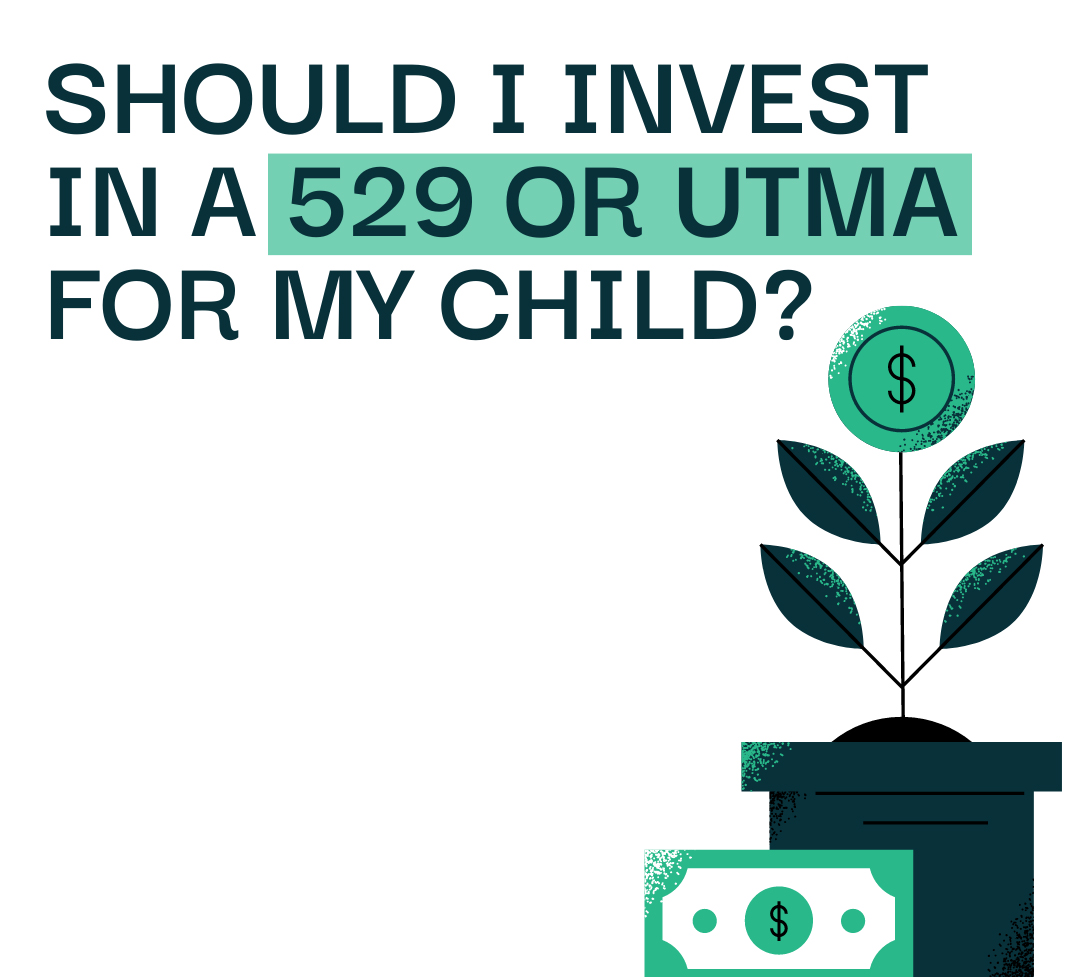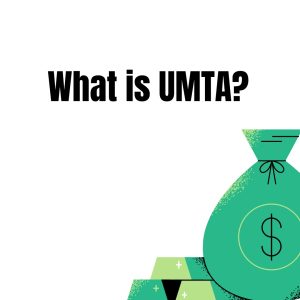
28 Dec Should I invest in a 529 or a UTMA for my child?
As parents, planning for our kids’ higher education is one of those things we can’t do early enough. Life is unpredictable and financial difficulties are always around the corner, so the sooner we start putting aside money for our kid’s future, the better.529 and UTMA are two terms you may have already come across when looking for ways to ensure your children can attend college.
Let’s analyze both options to help you choose which one is better suited for your specific needs.

What is a 529 plan? How does it work?
A 529 is a savings account that offers tax advantages and can be used to cover the educational expenses of the beneficiary, including:
- college tuition
- apprenticeships
- K-12 tuition
- student loan repayments.
529 plans tend to change slightly from state to state, as they’re subject to different legislations. However, their basic functioning and purposes are very similar. Plus, you are not limited to a 529 plan in your state but you can choose a 529 plan in another state if it suits your needs better.
So here is how they work: you invest after-tax dollars in a 529 account, see them grow tax-deferred, and can then withdraw them tax-free if you use them for college and other educational purposes listed before. They basically work in the same way that a Roth IRA works for retirees.

Where will my money be invested?
When opening a 529 account, your money is usually invested in mutual funds. You will have a certain degree of flexibility in building your portfolio.
You can also choose a target-date-style fund that takes into account when your kid is expected to finish high school. The closer you get to that date, the more the composition of your fund will change to include more low-risk investments like bond funds.
The investment choices included in each plan are the main criteria you should look at when choosing the right plan for you.
529 plans can also be transferred to another beneficiary. This is very useful when you have more than one child, and you don’t know whether they are all going to college or what school they will enroll in. With a 529 account, you can start saving money now and then decide in the future who the beneficiary will be. While you can’t have multiple beneficiaries on the same plan, you can transfer money from one fund to another 529 plan. However, make sure you check the transfer rules for each plan, as they may change from state to state.
Keep in mind that the money you put in a 529 should be used exclusively for higher education purposes. Using that money in any other way means that you’ll have to pay income tax and a 10% penalty.

What is UMTA?
The acronym UMTA refers to the Uniform Transfers for Minors Act. This law allows a minor to receive monetary and non-monetary gifts without the aid of a trustee or guardian. However, the donor or another adult appointed by the donor will manage the UMTA account until the minor turns 18 or 21. Before this age is reached, the minor will also avoid tax consequences, meaning that the amount won’t be subject to gift tax up to a certain amount each year, namely $16,000 in 2022 and $17,200 in 2023.
UMTA accounts are an extension of UGMA accounts. The difference is that in addition to cash, stocks, bonds, and mutual funds, a UMTA account also allows for other forms of gifts, such as real estate, fine art, royalties, intellectual properties, stocks, bonds, mutual funds, and patents.
Keep in mind that UMTA account features also tend to change from state to state.
So what’s the best option for me?
Both a 529 plan and a UMTA account are great ways to ensure your kid has enough money to go to college. The decision will depend on a number of contextual factors.
Do you have valuable assets that you can give to your kids as a gift that would cover a significant share of their future college expenses? In this case, a UMTA account is probably preferable. However, if the only way you can pay for your kid’s future tuition is by saving a bit of money each month, a 529 plan sounds like the better option.
Keep in mind that a UMTA account can reduce the likelihood your kid will be eligible for scholarships and similar programs based on financial need.
Are you already saving money for your kids’ education? Do you have any concerns or doubts about the best way to proceed? Share your thoughts and concerns. We are here to help you find the best alternative based on your specific needs.

